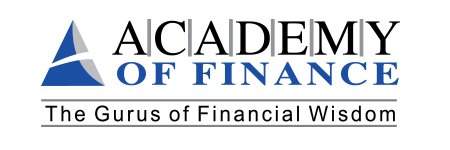
ICMA Graduate Conversion Programme: Batch 36

About Institute
The Institute of Certified Management Accountants (Australia) was incorporated in 1996 with the objectives of providing a professional organization for management accountants, and to encourage, disseminate and promote the specialisation in organizations in Australia and overseas. CMA Australia Qualification was introduced to Sri Lanka by the Institute of Chartered Accountants of Sri Lanka in 1999. The Academy of Finance has been appointed as the exclusive partner in Sri Lanka since 2006.
Programme Overview
There are four stages in the ICMA Graduate Management Accountant programme, with four subjects in each stage. Stage Four of the graduate management program which has multiple – graduate, professional and postgraduate entry points is considered as the Graduate Conversion Programme. Candidates will be required to complete up to four subjects in different combinations depending on their respective entry qualifications.
Programme Content
- Financial Modelling – Building financial models with Excel with an insight to financial accounting
- Management Accounting – Comprehensive course in management accounting theory and practice
- Financial Management – Financial mathematics, instruments, project evaluations and valuation
- Financial Statement Analysis – Deeper insight to financial statement analysis with numbers and beyond numbers
Conducted Date : 27th July, 2024
Galadari Hotel – Colombo
Weekend classes commencing 10th August
Weekday classes commencing 13th August
Introduction to CMA –Video:01
This is your introduction to the Academy of Finance, ICMA (Australia) and the Graduate Conversion Programme.
Introduction to Lecturers –Video:02
This is the introductions to the main lecturers of the Graduate Conversion Programme and CMA Qualifying Programme.
Experience Sharing –Video:03
Get inspiring through a successful senior CMA (Australia) member who has made his way to the top and useful tips and friendly advice from colleagues who have just completed the graduate Conversion Programme.
Academy Staff –Video:04
Meet the Academy of Finance team and get to know whom to talk to, for clarifications and formalities.
Get to know the colleagues in your class –Video:05
Meet the colleagues in your class. They will form an invaluable professional network with whom you will building lasting relationships within the next couple of months
Your NEXT STEP and the E-learning Guideline – Video:06
This is your guideline to the E-learning usage. The video will educate you on the policies, procedures, what to do and what not to do.
Financial Statement Analysis
Financial Management
Financial Modeling
Management Accounting
Simply send us your details, we will get back to you with more information.
The complete qualification you will have to complete up to four subjects of the Graduate Conversion Programme depending on your current qualification/s.
Financial Modeling
- Accounting for Managers: An Introduction
- The Accounting cycle 1 : Journals and ledgers
- The Accounting Cycle 2 : Balance day Adjustments, Descriptions
- The Accounting Cycle 3 Financial statements
- Company Accounts
- Financial Statement Analysis : An Introduction
- Accounting for Product Costing
- Profitability Planning
- Budgeting
- Financial Mathematics
- Capital Budgeting : Investment Decision Models
- Working Capital Management
Excel for Managers: pre readers (Before course starts)
Financial Statement Analysis
- The Demand for Financial Statement Information
- The Supply for Financial Statement Information
- Basic Techniques in Financial Statement Analysis
- Financial statement Numbers: Empirical and methodology issues
- The Impact of Accounting Policy Alternative on Financial Statement Analysis
- Cross – Sectional Analysis of Financial Statement Information
- Time – Series Models and the analysis of financial Statement Information
- Capital Markets and Corporate Disclosure
- Corporate Distress Analysis
- Corporate Distress Analysis – Multivariate Analysis
- Debt Rating, Lending Decision and corporate financial Statements
- Valuation and forecasting
Financial Management
- Fundamental Concepts of Financial Mathematics
- Introduction to the Theory of valuation
- Portfolio Returns and Risks
- Capital Asset Pricing Model
- Efficient Markets Theory
- Dividend Policy
- Bond Yields and Bond Pricing
- Introduction to Capital Markets and Funding Sources
- Evaluation and Selection of Capital Investment Projects
- Estimating project cash flows
- Capital Budgeting
- Cost of Capital
Management Accounting
- Management Accounting Basic Terms and Concept
- Cost Categories and Cost Volume Profit Analysis
- Product Costing
- Cost Allocation
- Budgeting
- Standard Cost Analysis
- Activity Based Techniques
- Relevant Costing for Decision Making
- Responsibility Centers and transfer pricing
- Performance Evaluation
- Inventory Management Quality Control
